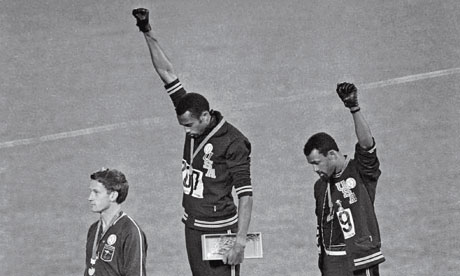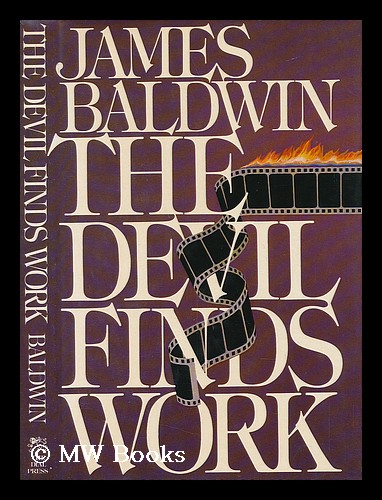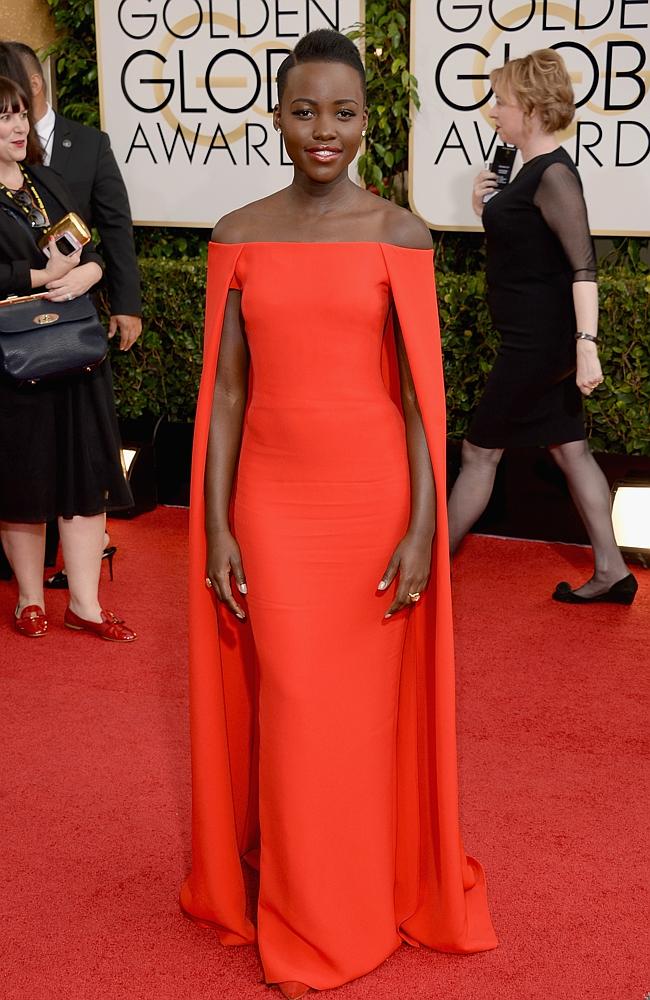Art exists in culture. By the same token, culture is represented in, and influences, art. That seems like a pretty obvious and irrefutable point. And yet, to talk about the links between art and culture consistently leads to panicked, even apocalyptic denunciations from those who otherwise occupy little intellectual common ground. Rather than being seen as complementary, or continuous, art and society are seen as matter and anti-matter; bringing them together, it is feared, will cause the end of all things.
Freddie deBoer fears, in particular, that the confluence of art and society will cause the end, or at least the decay, of society. In a Beyoncé think-piece calling for the end of Beyoncé thinkpieces, deBoer raises the familiar lefty fear that interest in art is a deadly form of false consciousness, distracting the intellectually flaccid from the real business of ridding the world of hegemons.
As I’ve said for a long time, a lot of progressive educated white types have essentially replaced having a politics with having certain cultural attachments and affectations. Really aggressively praising the Wire becomes a stand-in for “I am not racist.” Complaining that Selma was robbed becomes a stand-in for having done the necessary work to understand the history of race in America. Telling anyone who’ll listen that you think all of the creativity and risk are in hip hop now becomes a stand-in for advancing a meaningful political platform that could actually improve the lives of actually-existing black people. White people are so weird about Beyonce because Beyonce has become an all-purpose floating signifier, a vessel on to which bourgie white folks project all of their desires for how other people should see them. These vague associations with arts and media are intended to send a message that, if voiced explicitly, we all know by now to ridicule: some of my best friends are black.
It’s easy to get distracted here by the sweeping assumptions of bad faith — but that’s just standard deBoer being deBoer. What’s more interesting is the way that the typical Marxist/Frankfurt School mistrust of the popular arts is retooled in terms of racial justice. “Bourgeois” pops up rhetorically as it might have for Khruschev (who rather gloriously characterized an exhibit of experimental art as being equivalent to what you would see if you looked up from inside a toilet bowl at someone’s ass descending.) But the main sneer for deBoer is not directed at the middle-class, but at white people. DeBoer’s argument (with the unfalsifiable ad hominem mind reading taken out) is that white people care about Beyoncé, and that talking about her is (therefore) self-indulgent and decadent. Real revolutionaries should talk (all the time?) about income inequality, not pop music.
The problem for deBoer here is that black people have an incredibly long, rich, and important history of caring about art, and seeing it as central to their struggle for freedom and justice. Zora Neale Hurston, Langston Hughes, Miles Davis, Sam Cooke, bell hooks, James Baldwin, and many many more, would all be surprised to hear that their focus on cultural expression and representation was misguided and antithetical to the civil rights movement. Even if you’re just talking about Beyoncé, there are no shortage of black folks who have debated her as a political and cultural force (as just a sample, here’s Janell Hobson, Ebony Elizabeth, bell hooks and Janet Mock, Sydette Harry…the list could go on and on.)
DeBoer leaves himself some wiggle-room; you could read him as arguing that it’s only white people whose Beyoncé thinkpieces are awful. Perhaps he thinks, not that Beyoncé thinkpieces are bad in themselves, but that only African-Americans should be able to write about black popular music. But then you end up in a place where Beyoncé is a specialist, marginalized issue. Black people can talk about this thing that doesn’t matter; white people like deBoer will be over here analyzing matters of authentic importance, like the failure of the left, or the failure of the left (deBoer’s repertoire is somewhat limited). The need to separate trivial discussions of art from important discussions of social issues ends up effectively erasing black voices and black expression, either by suggesting those voices don’t exist, or by assuming that what they say is of only marginal importance to a struggle which is (in theory) centered on black people’s lives. (HT: Sarah Shoker for explaining this issue to me.)
Sarah Horrocks comes at the issue of art and culture from a very different place. DeBoer is worried that discussions of art will distract from the important work of social change; Horrocks is concerned that the battle for social change will distract from the particular, transcendent importance of art.
I do not believe that art has societal power. I believe art creates the sacred. What I mean by that is that, for each individual that experience a piece of art, a space exists that only that person experiences, that can be profound and moving, based upon what they have projected out as their perception, and how that filters back to them with this thing called art. But that experience is not something you can translate to another person. Two people can see the same piece of art, but the experience they have is never wholely translatable to the other. You take that shit to your grave. I know this because as a critic, I spend tons and tons of words trying to explain the power of my experience–but in the end, all I can convey is just that…the power of my experience. But even if you think you experience something similar–it is still different.
So what that means is that art can be extremely powerful to the individual, but because it is not translatable to society as a whole, it’s power is isolated to each individual that perceives the work.
It’s popular to say that art is this super powerful thing. This notion that a great work of art can crack the world in half. It is a moronic idea, and I say that as an artist, who absolutely believes in the creation of the sublime experience. But if art was so powerful–then why couldn’t Godard stop Vietnam? Why couldn’t Ralph Ellison end racism? Was their art not powerful enough? And if their art isn’t powerful enough–how can a bullshit issue of batman be that powerful?
Horrocks’ piece is much more careful, and much more generous, than deBoer’s. Partially as a result, she says directly what is implicit, or danced around, in his piece. Ralph Ellison (or those Beyoncé thinkpieces) have not ended racism; therefore Ralph Ellison (or Zainab Akhtar criticizing Horrocks) are socially pointless; they don’t matter, and cannot matter. The fact that neither the Civil War nor Martin Luther King ended racism is an conveniently ignored (by deBoer as well). Art can affect people individually Horrocks says, and is valuable for that reason. But it can’t have any social or political effect — a truth witnessed by the fact that great art with social commitments has not created a utopia.
Which leaves you, with deBoer, wondering why all those fools like Ralph Ellison and bell hooks bother to try to deal with political issues in their art or criticism. It seems like you should either be creating individual AbEx yawps, or organizing protests. Mixing the two is dumb — and dangerous. For deBoer, it leads to decadent bourgie white people congratulating themselves rather than overturning capitalism the way they should be. For Horrocks, writing still in the shadow of Frederic Wertham, “A society where art is considered powerful is not a safe one for art to be created in.” If people think art matters, there will be censorship, and even violence, against artists. The problem with censorship is not that voices for freedom are silenced, but that the state and those creating political art both collude in a silly but tragic error. If only Paul Robeson had realized that political expression was irrelevant, he needn’t have bothered with all those songs about racial and class justice, and he never would have been blacklisted.
This isn’t the conclusion that either Horrocks or deBoer wants to arrive at, of course. Rather, Horrocks hopes that separating art and political expression will leave the world free for purer, less constrained artistic expression. DeBoer hopes that separating art and society will lead to purer, more effective politics. But if you stipulate that art can’t change the world, you end up with art made only by people who don’t care about changing the world — which makes much of the art by marginalized people irrelevant or incoherent. And similarly, creating a politics walled off from discussions of culture or aesthetics ends up with a politics of struggle oddly divorced from the emotions, or thoughts, or interests, or feelings of those on behalf of whom you’re supposedly speaking. #BlackLivesMatter is a movement, but it’s also a poem — which is why, with the power of art to mean more than it means, it can, and has to, apply to black women (and men) at the Grammys, as well as to black men (and women) targeted by police.
Horrocks loves art, and wants to see it protected. DeBoer is committed to creating a better world, and doesn’t want that struggle debased. I love art and want a better world too. But I don’t think you can have art without the impetus, or hope, of change, and I don’t think you can get to a better world by denying the power of dreams. Surely if the African-American experience in this country has demonstrated anything, it’s that you can’t take the struggle out of art, nor the art out of the struggle.



This is a great piece- it reminds me of your critiques of “art and the sacred” in that Celine Dion book, and the Artist’s Way. If art has a public, historic meaning, even if it’s unstable, it is part of ideology, and so it’s somewhat cowardly not to account for the politics of your art (or for that matter, your faith- you comic book-reading atheists).
I love your conclusion. I’m surprised Horrocks doesn’t make the leap from the idea that art can affect the individual to the idea that the individual can then go on to affect politics. That seems like a logical progression to me, but then, I guess I’m one of deBoer’s useless idealists…
I think the trick is that Horrocks sees some of the less idealistic possibilities and is leery of giving them credence. Goering was apparently very affected by Mein Kampf; that seems like an instance where art affected an individual, and that individual went on to engage in politics in a fairly horrible way. Same with anti-Tutsi propaganda during the Rwandan genocide; pretty clearly used to stir up individuals for mob action, and affective as such. If you’re willing to see art as potentially politically good, you leave the door open to admitting it can be politically bad too, which means that someone might criticize it as such, and perhaps morally censure the creator, which is what Horrocks is trying to avoid.
I still am puzzled by your championing of Beyoncé. She’s another mediocre pop singer bloated into importance by the mass media. I love R&B but she’s about as crappy a representative of it as exists.
Well…this piece isn’t exactly championing Beyoncé, I wouldn’t say. Just arguing that the many smart folks who have talked about her (pro and con) aren’t deluded in thinking that there can be a relationship between culture and politics.
I presume when you say, “I love R&B”, you mean that you like particular sub-genres; i.e., old school soul, rather than post-disco 90s and 2000s R&B. Beyoncé’s a pretty great singer by any reasonable measure, and her music is often innovative and weird (IMO). She’s uneven — her last album had some great singles, but also a good chunk of filler. But she’s pretty interesting as a cultural figure too — she’s embraced controversial political positions (like feminism) in a way that’s not necessarily unusual for black pop singers, but which I think is still meaningful, just as I think Robeson’s political commitments were meaningful. (DeBoer might well scoff at comparing Beyoncé to Robeson — but I find it hard to believe that Robeson would scoff.)
Yeah, I admit that R&B for me is typically ’60s Motown; great stuff, though.
Feminism is controversiaL? Huh?
And I think Robeson WOULD have scoffed.
Oh, yes, feminism is controversial. Most celebrities won’t touch it.
I bet Robeson would have seen a talented, popular black woman singing about empowerment in general, and black women’s empowerment in particular, and he would have been okay with that.
Doubt it. He was a pretty doctinaire Communist; his notion of liberation for his people went through the abolition of class and the dictatorship of the proletariat.
And come on. Feminism is no longer even remotely controversiaL in any medium. Not even close.
Paul Robeson was a Marxist, sure. But he was also committed specifically to the black civil rights struggle.
I’m curious what he thought about Josephine Baker? Can’t find any info online; there’s a book about the two of them, but seems more about parallels rather than abt actual relationship….
Here; it looks like Baker scandalized Robeson’s wife, but not Robeson himself, though hers wasn’t the career he wanted.
https://books.google.com/books?id=vuckDH3cD_EC&pg=PA187&dq=paul+robeson++josephine+baker&hl=en&sa=X&ei=ivzcVPOaO4-GyQTR7oCQCA&ved=0CB0Q6AEwAA#v=onepage&q=paul%20robeson%20%20josephine%20baker&f=false
You’d better tell all the folks threatening Anita Sarkeesian with death that feminism is uncontroversial, I guess. Or all the celebrities who won’t say their feminists. Or the vast number of women who don’t identify as feminists. Like, what would qualify as “controversial” to you, Alex? Feminism is still a minority identity, and broad swathes of people react to it with antipathy, ranging from mild discomfort to actual violence.
Is it me, or is the very act of lumping together The Wire, Selma, and Beyonce vaguely racist? And while I’m at it that stuff about Beyonce being a floating signifier seems sexist, too. Somehow it puts me in mind of a clip I saw of Sam Biddle the other day where he explains that Taylor Swift is a corporation and so her sexts are public property.
Pop stars aren’t ciphers. They’re people. They may be icons, but icons have meaning. That’s why people write about them.
Anyway Beyonce is so ubiquitous that saying you like her has no real meaning. It’s not a social signal or cultural currency in the same way as The Wire (not sure about Selma). In fact that lack of cultural currency is likely why Beck beat her out for that award: the Grammys were trying to send a social signal about their own brand. Anyway that was my takeaway from Kanye’s critique.
Feminism has made big progress, much like civil rights and gay rights. But if you think conservative ideologues aren’t doubling down, then you’re not watching Fox.
Hah…Beyoncé as floating signifier seems Lacanian, and yes, therefore sexist.
DeBoer is generally confused about who does and doesn’t like Beyoncé (presumably because he doesn’t actually care that much.) Beyoncé gets a *lot* of flack; people really hate her, and not just people on the right. DeBoer seems to be imagining this world in which white people like Beyoncé to show they’re cool, and black people don’t care about her because they realize she’s inconsequential — but that’s really not the discussions around her that I’ve seen. Instead, you get right wingers like Huckabee and Bill O’Reilly condemning her for being sexual and leading girls astray,and a certain amount of white (and some black) feminists condemning her for the same thing. And then on the other hand you have a lot of black feminists (and some white ones) who identify with her, and find her success and her music meaningful and a counter to the way that black women are generally treated in the media. (Obviously that doesn’t account for all her fans or anything, but those are the general lines of discussion on the left that seem most prevalent.)
Which isn’t to say that deBoer, or Alex, or anyone needs to like her or care about her or anything. I think in this instance the fact that deBoer doesn’t know what he’s talking about causes some problems for his argument, though.
It’s not a stretch to say that a lot of black women care about Beyonce quite a bit.